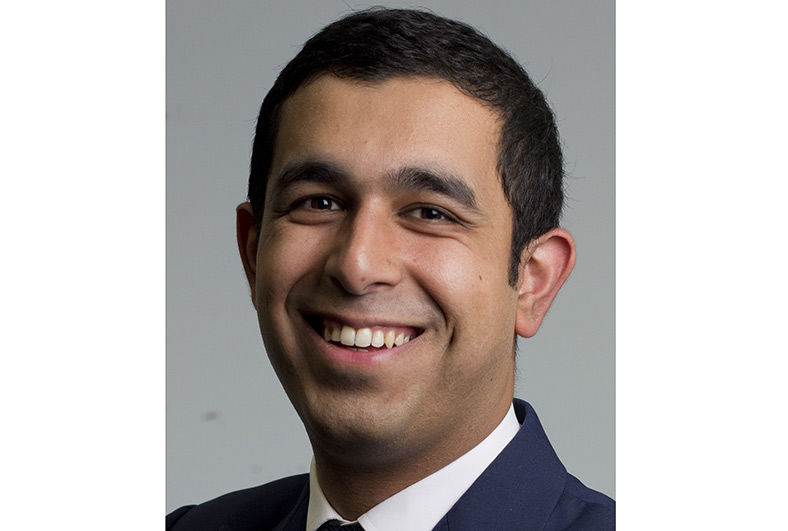Spotlight on Scoreboard, with Murad Ahmed

After 132 years of publishing, the FT has had to adapt and change as more people are looking to get their news online. Following the success of newsletters like Due Diligence, its daily briefing on corporate finance, mergers & acquisitions and private equity, its latest launch is weekly briefing for the business of sport, Scoreboard.
The FT’s sports editor and newly appointed editor of Scoreboard Murad Ahmed tells us more about the newsletter, the challenges and impact that COVID-19 has had on the journalism industry and what more can be done to fight inequality in newsrooms.
Tell us what Scoreboard is all about…
Scoreboard is a bet that the FT can dominate global coverage of the business of sport. It has started life as a weekly newsletter to subscribers, but we intend it to become a ‘mini-brand’ that can spin off into other ventures, such as events, special reports, video series and more.
That requires investment and greater resources. In New York, we have hired Sara Germano from the Wall Street Journal as our new US sports business correspondent, and in London, Samuel Agini from Financial News as sports business reporter. They are star reporters who will deepen our coverage of the industry.
Was it difficult launching a newsletter during a pandemic?
In some ways, yes.
We have had to onboard two staff members who have never been able to work in an FT office. They need to get connected with a huge array of editors across our global network. We also needed to create a new production process to get the newsletter off the ground, which is simply hard to do remotely.
Thankfully, Scoreboard is co-founded by Arash Massoudi and James Fontenella-Khan, the brains behind the FT’s excellent Due Diligence newsletter which is already a big hit with readers. They’ve directed the building of the product, provided quality control and generally deliver wisdom and inspiration. We’re also grateful to be assisted by Anna Nicolaou, US media correspondent, on stateside stories. So, it is a big editorial team that is supporting the project.
What do you hope readers will gain from Scoreboard?
There’s lots of great sports journalism out there, but relatively little coverage of some great corporate stories. We plan to follow the billionaire club owners, media giants, tech companies and entrepreneurial players that are transforming the world’s biggest leagues. While others follow the ball, we will follow the money.
How much of an impact has COVID–19 had on sports journalism as an industry?
That’s difficult for me to say, as I really consider myself as, first and foremost, a business reporter, who has a (highly enjoyable) sideline as a long-form sports writer. This role is nothing like the stresses and strains of being a sports correspondent at a UK paper. For the FT, there is nothing quite like covering a financial crisis, and the pandemic has provided one across every industry, including sport.
What are the challenges and benefits of leading a team based both in the UK and US?
The FT prides itself on having a global network of correspondents. Working with colleagues across the world is really nothing new.
We believe that if a story crosses borders, we should be at the forefront of it. Increasingly, sport is such a story – just look at the nationalities of owners in the English Premier League.
When we were thinking about Scoreboard, we imagined it to be an international product and it seemed perfectly natural that one of our first hires should be in New York. I should say we hope to draw in our colleagues across Europe, Asia and beyond to write for Scoreboard, too.
With print figures declining, do you think digital journalism and weekly newsletters like Scoreboard will be the way forward?
I think great stories are the way forward. The format matters less than the content.
Across the FT, the aim is to provide greater depth, better stories, deeper analysis and wittier commentary than our rivals. That will convince more readers to buy and keep buying the FT. Through the pandemic, our digital subscriber numbers have increased. So has readership of the newsletter. Those two things go together.
Has the relationship between PRs and journalists improved since you entered the industry?
It depends. Good PRs understand that all journalists, for the most part, simply want to report fair and accurate stories. Those who consider the press as part of a marketing strategy for their clients will always fail.
What more can be done in the journalism industry to help with diversity?
Hire more black journalists. I do not just mean ‘BAME’ reporters.
In UK newsrooms, as I know from personal experience, there is a shocking lack of journalists from Asian and from other ethnic minority communities.
But the lack of black correspondents is stark and in need of more urgent correction.
If any paper does not have reporters that truly reflect the population at large, it will simply miss out on covering the full story. I have often heard the refrain that ‘they do not apply’. If talented black people are not applying for great jobs, you have to ask why that is. And change, fast.
Sign up for Scoreboard here and find Murad Ahmed tweeting @muradahmed.







